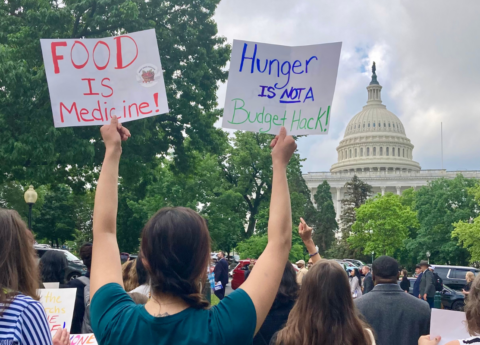Kentucky is in the center of the national spotlight as the fate of the Affordable Care Act (ACA) and the future of healthcare in America hang in the balance. The state’s extraordinary success in expanding health coverage under the law means Kentucky has much to lose if Congress repeals it or scales it back.
Over the weekend, Governor Bevin spoke out on Obamacare as the states’ governors held a meeting in Washington. In a press conference outside the White House, the governor stated that “the net result” in Kentucky has been “a remarkable decline in access to health care coverage” with “fewer people able actually to even see a doctor.”
These claims are just not true. In addition to dramatically expanding health care coverage, with the share of the population uninsured dropping from over 20 percent to 7.5 percent, the law resulted in many more people getting the care they need.
A careful study by researchers at Harvard’s School of Public Health compared Kentucky and Arkansas, which expanded Medicaid, with Texas, which did not. They found low-income adults in the two expansion states are now more likely to have a personal physician, go to check ups and get regular care for chronic conditions and are less likely to delay getting care due to cost, skip medications or use the emergency room as a usual source of care.
Other data show the startling magnitude of these differences. The number of Kentuckians getting preventive screenings through Medicaid doubled in the first year of the law alone, smoking cessation counseling nearly tripled and the state has had a 740 percent increase in Medicaid expansion-covered treatment for people with drug addictions.
And while care doesn’t always immediately translate to better health, Kentucky is already seeing positive results. The same Harvard study found that adults in the two expansion states were more likely to report they were in “excellent health.” The governor recently tweeted that “the whole point of healthcare coverage is of no value if you don’t create better health outcomes.” Yet there’s solid evidence that thanks to the ACA, we already are.
Despite all of this progress, there’s more work to do to improve our healthcare system. Too many people in the private market still face high healthcare costs, and struggle to afford insurance. But additional changes should build on the impressive gains the ACA made, not tear them down and move us backwards.
The governor’s position on healthcare matters greatly because if Congress and the President are successful in replacing Obamacare with something else, a new plan will likely give more authority to states to design coverage. The Medicaid waiver the governor proposed last year would introduce barriers to coverage even while creating new, expensive administrative burdens for our healthcare system. If that’s the direction he will take, more state control could mean real reductions in access to care.
Kentucky needs a fact-based discussion of what the law has meant for the Commonwealth as we navigate the big national debate in front of us, and as we head toward major decisions about what we will do in our own state.

